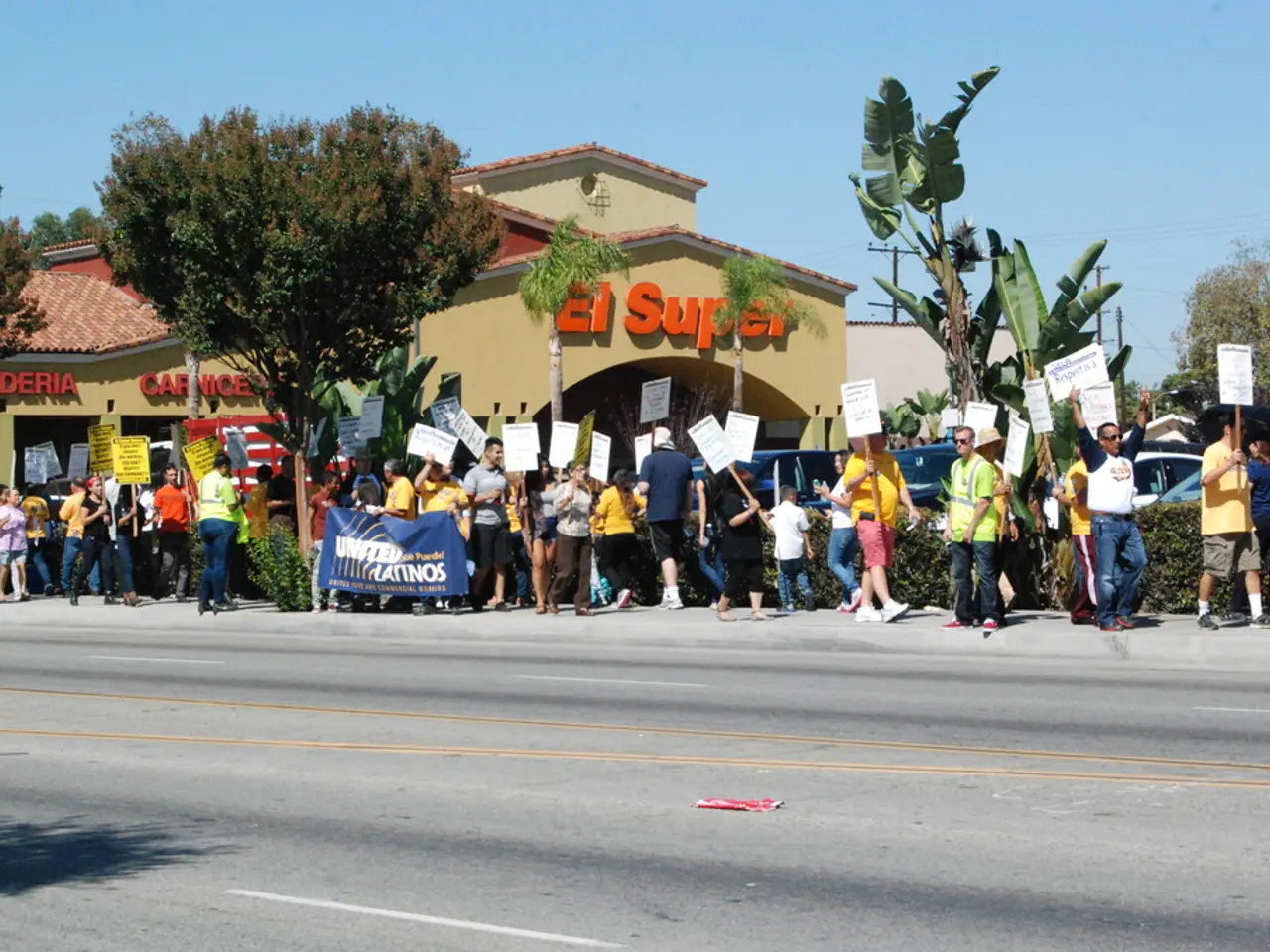California Democrats' strategy to challenge Texas Republicans' redistricting efforts moving forward
California, a Democratic-led state, is set to shake up its redistricting process, with lawmakers returning to the Capitol on Monday after the summer break to discuss a package of bills aimed at establishing new congressional maps.
Currently, California relies on a citizens redistricting commission, a politically balanced, independent group that draws congressional districts once every 10 years, based on census data, and operates free from direct legislative control. However, the proposed approach disrupts this cycle by having lawmakers approve new maps aimed at gaining five additional Democratic seats for the 2026 midterms.
This change is bundled in a constitutional amendment called the "Election Rigging Response Act," which would apply for the 2026, 2028, and 2030 midterm elections, after which the independent commission would resume its role following the 2030 Census.
The implications for the 2026 midterm elections include the potential for five more U.S. House seats to shift to Democrats in California, which could significantly impact the balance of power in Congress. This partisan redistricting has led to lawsuits from California Republicans who argue that the plan violates the state constitution by overriding voter-approved independent redistricting and by being rushed through before voters can fully review the legislation.
However, the California Supreme Court has allowed the special election to proceed on November 4, 2025, where voters will decide whether to approve this new map.
Notable figures in the debate include Governor Gavin Newsom, who is leading a campaign in favor of the new congressional maps, and Arnold Schwarzenegger, the former governor of California, who is a prominent opponent of the new maps. State Republicans claim the move is a power grab by Democrats.
The cost of this special election is a concern for many, with a 2021 special election in California costing over $200 million to conduct, and state Republicans this week estimating this year's special election would cost $235 million.
The proposed redistricting plan in California differs from the current system in several key aspects:
| Aspect | Current System | Proposed Redistricting Plan | |-------------------------|--------------------------------------------|----------------------------------------------------| | Who draws maps | Independent Citizens Redistricting Commission | California Legislature/elected officials | | Frequency of redistricting | Once every 10 years after Census | Applies mid-cycle for 2026, 2028, and 2030 elections | | Purpose | Nonpartisan, census-based | Partisan, aiming to give Democrats +5 seats | | Voter role | Map approved by commission, no mid-cycle changes | Map subject to voter approval via special election | | Legal status | Constitutional voter-approved process | Requires constitutional amendment and voter approval|
This proposed shift could temporarily break California’s tradition of independent redistricting in order to respond politically to redistricting in other states, with significant consequences for the upcoming midterm elections and beyond.
The campaign is framed as a referendum on Trump and the future of American democracy, with Democrats choosing Nov. 4 for the election because Los Angeles County and others are already holding local elections that day. A coalition of county officials in California has urged the Legislature to provide money in advance for the special election, as many counties are cash-strapped and worry they won't have enough money to administer the election.
Lawmakers in California will hold hearings on Tuesday and Wednesday on the package of bills to establish the new congressional map. Governor Newsom is not worried about winning the required support from two-thirds of lawmakers to advance the maps, but amendments to any legislation in California would require a 72-hour wait before a vote, potentially jeopardizing the Democrats' plan to approve the package by Thursday.
The new map would take effect only if a Republican state moves forward with new maps. Elections committees in both houses are asking for public feedback on the proposed map, but it's unlikely any changes would be made after the bills are officially introduced Monday. Steve Hilton, a Republican candidate for governor, has paid for a legal opinion suggesting that redistricting outside of the normal process violates the California Constitution.
This proposed redistricting plan in California is the first Democratic-led state to move forward with a counteract to the Texas redistricting plan. The campaign is a significant development in the ongoing national debate about redistricting and its impact on American democracy.
- The California government is discussing a new approach to redistricting, which involves having lawmakers approve new maps in an attempt to gain five additional Democratic seats for the 2026 midterms.
- The debate over this proposed redistricting plan in California has seen several notable figures, such as Governor Gavin Newsom, who supports the new maps, and Arnold Schwarzenegger, who opposes them.
- The proposed shift could have significant consequences for the upcoming midterm elections and beyond, temporarily breaking California’s tradition of independent redistricting.
- The new map would take effect only if a Republican state moves forward with new maps, and any changes to the proposed map would be unlikely after the bills are officially introduced.
- The "Election Rigging Response Act," as the change is called, has led to lawsuits from California Republicans, who argue that it violates the state constitution by overriding voter-approved independent redistricting and being rushed through before voters can fully review the legislation.





